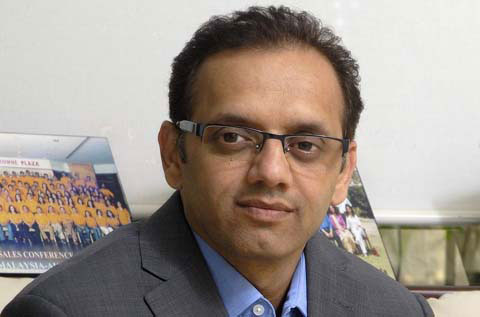‘Poker is the game of the future’, says AIGF, CEO, Roland Landers, ambitiously.
Formulated in 2016, the All India Gaming Federation (AIGF) has been pushing for the legalisation of sports betting.
Internationally, gambling comes under the umbrella term ‘Gaming.’ From Poker and Rummy to horse racing and fantasy leagues, each one of these have some sort of betting mechanics in place. While many countries / states earn huge revenues from such events, most of these are still banned in India.
The word ‘gambling’ brings in the stigma of illegality, even with games like Rummy, which has been declared as a ‘Game of skill’ by the Supreme Court of India a couple of years back. In India, only two states currently allow gambling through their offline gaming licences, Goa and Sikkim.

It is to be noted that the gaming laws are restricted state-wise and thus each state has to abide by its own laws in the vicinity. However, online poker can be played by any individual throughout the country except from two states: Assam and Odisha, because the gaming acts applicable to these states, the Assam Game and Betting Act 1970 and Orissa Prevention of Gaming Act 1955 do not create any exception for ‘games of skill.’ Thus, any game in which money is at stake, is barred according to the aforementioned acts. Skill-based games were made legal in Nagaland last year through a notification.
Now, according to Landers, AIGF is currently in conversation with at least three states from southern India to move ahead and legalise skill based gaming; however he did not specify any names. The states have apparently studied the Goa model and are keen on applying the same and AIGF is helping them out on how to go about it.
According to a KPMG report of 2010, gambling and betting in India is worth over $60 billion, most of which is gray and according to FICCI, if betting is legalised, the revenue potential can reach as high as Rs 20,000 crores. Thus legalising it will not only help in generating revenues, but also assist in regulating the betting practices. Taking an example from ‘The National Lottery’ of UK and how it supports their athletes, the revenue fund could be used for something similar or it could also be used to strengthen the social infrastructure in some form.

AIGF is registered under the Societies Registration Act, 1860 and has its headquarter in Mumbai. The organisation follows a membership policy. With three founding members, it has a total number of 12 members currently and offers membership in the categories of gold, silver and even a start-up plan which will be going live from April. “We want to develop where we will work with a foreign partner, so that responsible gaming happens from all aspects,” says Landers. In a more elaborative way, ‘gaming’ here stands for eSports, fantasy leagues, poker, rummy, horse racing, lotteries, casinos and sports betting. The organisation wants sub-committees for each one of them.
“If betting and casinos are legalised, it will help the entire value chain including tourism and job creation and eventually the government can earn revenues from licences and tax,” asserts Landers.
With high amount of smartphone penetration and an enormous youth population, a digital India could earn huge revenues from these modes, while regulating the process to that it does not go into the gray area.
AIGF aims to regulate the basis on which these kinds of games are played and provide it with more credibility. Going by the ideas of Landers, the organisation wants to maintain the stance of ‘Responsible Gaming’. “Just like the phrase ‘responsible drinking’, we want to ensure the same for gaming. No under-age gaming or emptying your pockets,” adds Landers, “This is our major agenda.”
Some of the states where betting and staking money on even ‘skill-based games’ is illegal have pretty old gaming acts, while online poker, rummy and fantasy leagues are fairly new. Thus, AIGF is looking forward to work with these states to issue notifications to address the issue. The organisation has employed a law firm, Lakshmikumaran & Sridharan Attorneys, as their aide.
AIGF is also pushing to amend the structure in which GST (Goods and Service Tax) would be applied to gaming, with a recommendation. With a lot of international eyes on the Indian market, which is poised to grow on a steady scale, non-allowance of FDI in this sector is a problem that the organisers are trying to address as well.
AIGF is organising a ‘Gaming Conclave’ on 17 March in association with FICCI where all the regulators would be present. The agenda would include cyber security, a white paper on skill gaming and more.